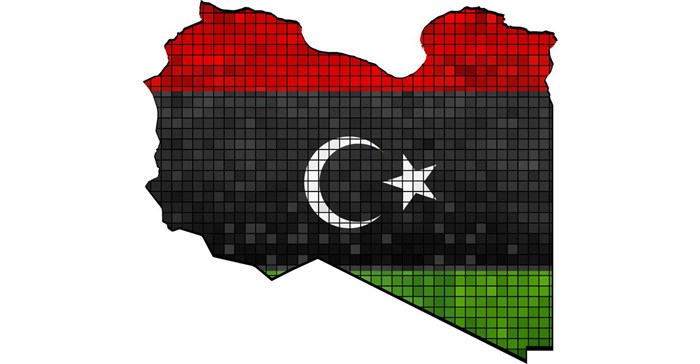Chaos-ridden Libya's economy on the brink, say experts

When the 2011 uprising toppled the regime of dictator Moamer Kadhafi, Libyans dreamt of transforming their country into another Dubai.
Today, they have somewhat lower expectations. "To live in security, have electricity, fuel and a salary, and send our children to school. We're not asking for anything more than that," said Mahmoud, a 35-year-old Tripoli resident.
Long queues form every morning at banks, which do not have enough cash to meet customers' needs, and the people face unprecedented high prices. The World Bank reports a "substantial loss in real purchasing power of the population", with basic food prices leaping 31% in the first quarter of the year.
Meanwhile, in the absence of police or army, crime is rife in the capital. Car theft, kidnapping for ransom and vendettas between armed groups are common.
After 42 years in power, Kadhafi left behind a dilapidated infrastructure, an economy totally dependent on oil revenues and a poorly skilled workforce. In the five years since he was killed, most foreign investors have fled.
"The Libyan economy is near collapse as political stalemate and civil conflict prevent it from fully exploiting its sole natural resource: oil," the World Bank warned. Libya may have Africa's largest oil reserves, estimated at 48 billion barrels, but production and exports have slumped dramatically through years of crisis.
Libya pumped around 1.6 million barrels of crude a day before Kadhafi's overthrow, but the ensuing chaos hit production which fell as low as 290,000 in recent months, according to the National Oil Company (NOC).
Coupled with low global oil prices, this has left the economy "mired in recession since 2013", with record high deficits, the World Bank said.
Libya has lost more than $100 billion (91 billion euros) in oil revenues since 2013, according to NOC chairman Mustafa Sanalla. Oil income has fallen to record lows, hitting just $2.25 billion (2.05 billion euros) in the first seven months of 2016, according to the World Bank.
That is far from the $50 billion (45 billion euros) per year oil revenues brought Libya under Kadhafi. The sector, which used to bring in 95% of state revenues, has fallen victim to feuding between militias and rival governments that have torn the country apart.
Oil production fell to near zero during the 2011 uprising. In the following months it came close to pre-revolution levels, but in 2013 tumbled again as protests and violence erupted around key export terminals in eastern Libya's so-called Oil Crescent.
In September, the four terminals were seized by forces loyal to Field Marshal Khalifa Haftar, who is allied to an authority in the east that opposes the internationally recognised unity government based in Tripoli.
After Haftar's takeover, exports quickly resumed - a development welcomed by the NOC which has sought to remain neutral despite the two governments' intense rivalry. But repairing infrastructure damaged by fighting will take time, and the World Bank does not expect production to return to capacity until 2020.
Even as exports resume, the crisis is likely to continue as revenues struggle to match vast public spending, Karima Munir, an independent Libyan expert, told AFP. "The country is a massive welfare state and alternative sources of income need to be found," she said. "The reliance on oil has had a severe impact on the economy and put pressure on (capital) reserves."
To bridge the revenue gap, the authorities have drawn on dwindling currency reserves which the World Bank says have fallen from $107.6 billion (97.7 billion euros) in 2013 to $43 billion (39.0 billion euros) in 2016.
Currency exchange restrictions and speculation are pushing the economy into a vicious cycle and boosting a flourishing black market. Most Libyans no longer trust the banks and almost all transactions happen on the black market.
Supermarket shelves are empty as traders cut imports for fear of losses in a wildly fluctuating market. One of the few business leaders still in Tripoli warned that things could deteriorate further. "The situation could get even worse if a quick solution isn't found to the problem of liquidity," he said.
Source: AFP.
Source: I-Net Bridge

For more than two decades, I-Net Bridge has been one of South Africa’s preferred electronic providers of innovative solutions, data of the highest calibre, reliable platforms and excellent supporting systems. Our products include workstations, web applications and data feeds packaged with in-depth news and powerful analytical tools empowering clients to make meaningful decisions.
We pride ourselves on our wide variety of in-house skills, encompassing multiple platforms and applications. These skills enable us to not only function as a first class facility, but also design, implement and support all our client needs at a level that confirms I-Net Bridge a leader in its field.
Go to: http://www.inet.co.za







